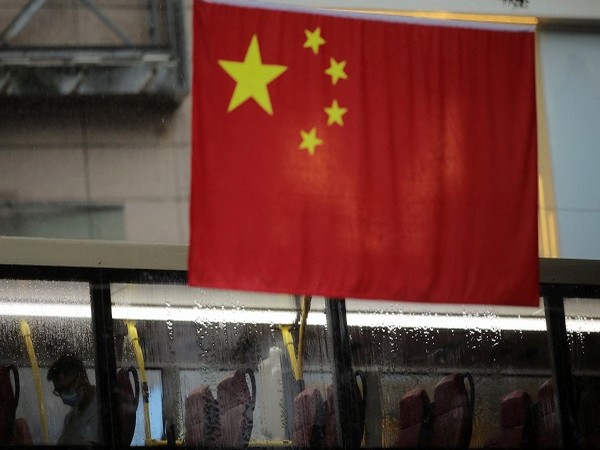Being increasingly seen as “easy money”, the Chinese investments under
Belt and Road Initiative (BRI) across the world are causing alarm among the
beneficiaries, as some realise, at times too late, the debt trap that it brings.
It’s a mixed picture, but worrisome nevertheless. Some get abjectly
dependent and cannot find a way out, others struggle to survive by curtailing
dependence and cancelling projects. But suffering in silence is not an option:
debts incurred have to be paid back, come what may.
Some speak up. The recent warning by Bangladesh finance minister AHM
Mustafa Kamal or a recent cancellation of a key Chinese-financed project by
Zambia are sharp pointers.
Zambia, working to prevent China’s debt-diplomacy, which only reaps profits
to Beijing while countries are pushed towards an economic crisis, this month
cancelled USD 1.6 billion Chinese loans.
Kamal has warned that developing countries “must think twice” about taking
more loans through BRI as global inflation and slowing growth add to the
strains on indebted emerging markets.
In an interview to Financial Times, Kamal also said China needed to be
“more rigorous in evaluating its loans amid concerns that poor lending
decisions risked pushing countries into debt distress.”
The deep economic stress Pakistan is currently experiencing and the regime
change in Sri Lanka amidst massive public protests have rattled many in
South Asia even as experts elsewhere take note of these economies that are
weak but remain significant as their wellbeing affects huge populations.
Pointing to Sri Lanka, where Chinese-backed infrastructure projects that
failed to generate returns had exacerbated a severe economic crisis, the
Bangladeshi finance minister said, “Whatever the situation [that] is going on
worldwide, everybody will be thinking twice to agree to this project (BRI).”
“Everybody is blaming China. China cannot disagree. It’s their responsibility.”
He said the Lankan crisis highlighted that China had “not been rigorous
enough” in deciding which projects to support. It needs to “make a thorough
study” before lending to a project. After Sri Lanka . . . we felt that Chinese
authorities are not taking care of this particular aspect, which is very, very
important.”
Bangladesh is lucky, and solvent enough, having made rapid strides under
Prime Minister Sheikh Hasina in the last decade, to seek funds elsewhere,
hoping for better, more transparent, terms. It is seeking up to $4 billion more
in total from a range of other multilateral and bilateral lenders, including the
World Bank, Asian Development Bank, Asian Infrastructure Investment Bank
and Japan International Cooperation Agency.
Significantly, Kamal spoke immediately after China’s foreign minister Wang
Yi visited Bangladesh for meetings with officials including Prime Minister
Sheikh Hasina. The signal is: correctives are needed.
Sri Lanka, which defaulted on its sovereign debt in May, is in negotiations
with the IMF for an emergency bailout. Pakistan, whose foreign reserves
have fallen to enough for just a month and a half’s worth of imports, last
month reached a preliminary deal with the fund to release $1.3 billion as part
of an existing $7 billion assistance package.
But as the economy spirals down by the day, the IMF money remains elusive.
Army Chief, General Qaisar Jawed Bajwa has added economic diplomacy
to his military duties as he is due to retire in November. He has met or
telephoned top officials of the United States, Saudi Arabia and the UAE,
among others.
Bangladesh has been hit hard by a rising energy import bill, with fuel
shortages forcing daily, multi-hour power cuts. Its foreign reserves have also
fallen to less than $40bn from more than $45 billion a year ago.
Like other BRI beneficiaries, Bangladesh is “under pressure.” Like
“everybody is suffering, we’re also under pressure”, Kamal said, determined
not to default, like Pakistan and Sri Lanka, in debt servicing.
Kamal’s unstated warning to all BRI beneficiaries, wherever they are on the
globe, is that economic mismanagement, dependence on the BRI’s “easy
money” and defaulting in debt repayment is a sure recipe for political turmoil.
Significantly, the Chinese shoe also pinches amidst global economic crisis,
impacting its ambitious investment plans. According to Globely News
(August 8, 2022), the BRI continues its downward slide in 2022 as spending
on new projects declines and Chinese development banks balk at financing
projects in high-risk countries.
The value of new BRI-linked projects fell to $28.4 billion in the first half of
2022, compared to $29.6 billion in the same period last year. Globely News
quoted a Chinese study by the Green Finance and Development Center
(GFDC) at Fudan University, Shanghai, that said the BRI spending took a
major hit in 2020 due to the COVID pandemic. But it had already been in
decline since its peak in 2017 and has only modestly recovered since 2021.
The negative impact on BRI is global, given its increasing reach. The BRI is
not only reduced in scope, but there are also changes in its geographical
focus as China’s focus shifts away from sub-Saharan Africa. New
collaborators included oil-rich Saudi Arabia and Qatar. The initial years of the
BRI saw a surge in Chinese financing of railroad development in Africa, but,
tellingly, there have been no new rail projects in Africa announced in 2022.
In short, China’s financing of projects in Africa, as in many other countries,
has dissipated.
CHINA’S “EASY MONEY” RUINS RECIPIENTS

- Advertisement -
- Advertisement -
